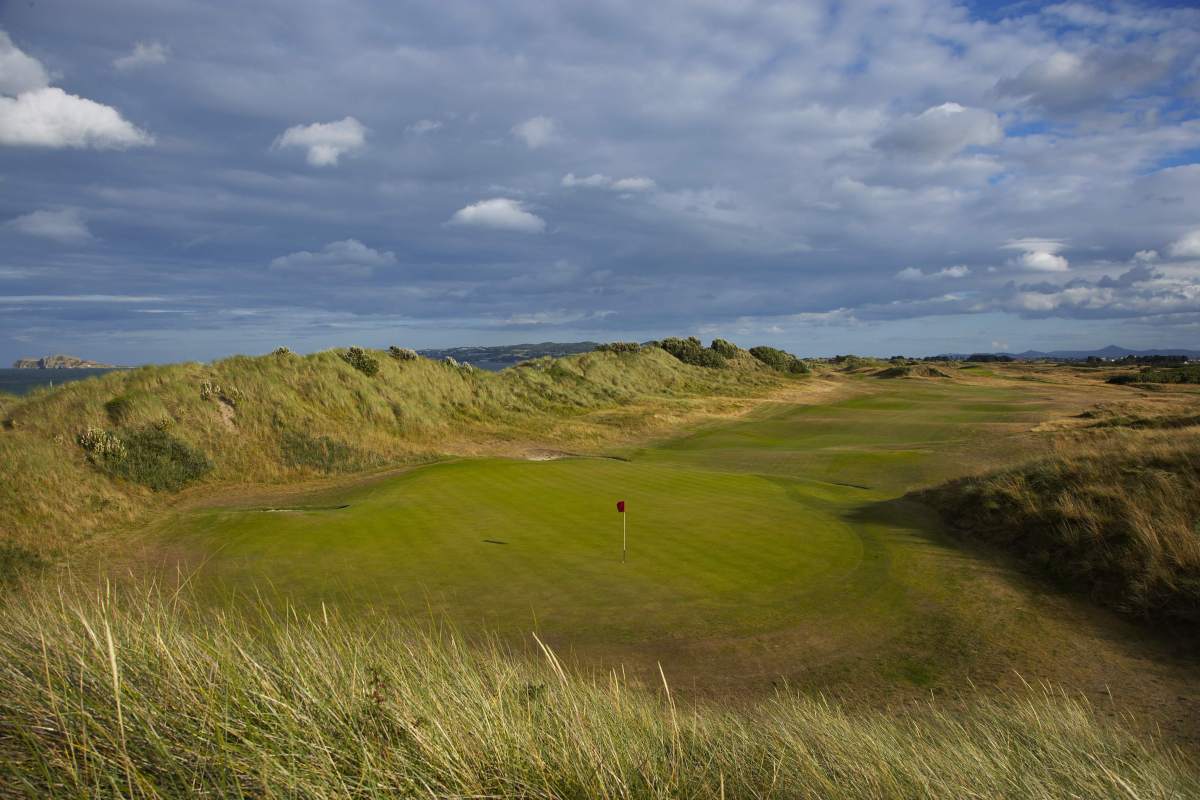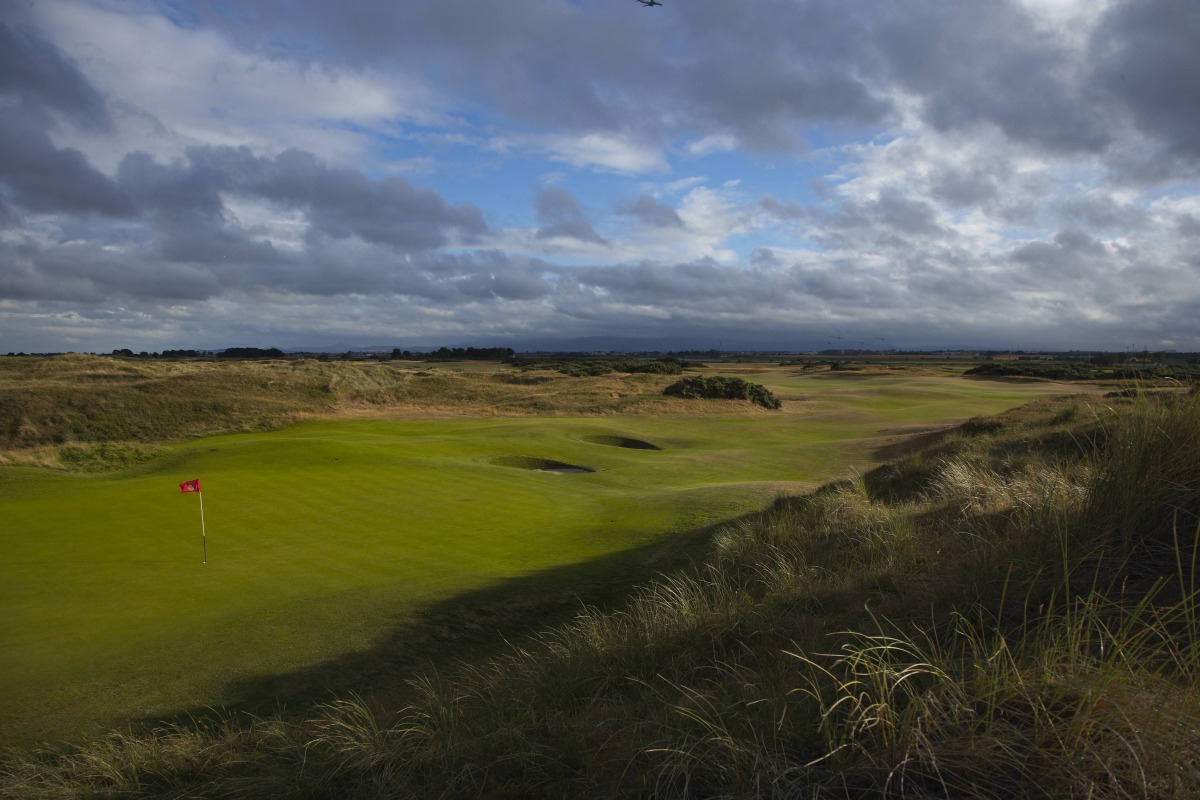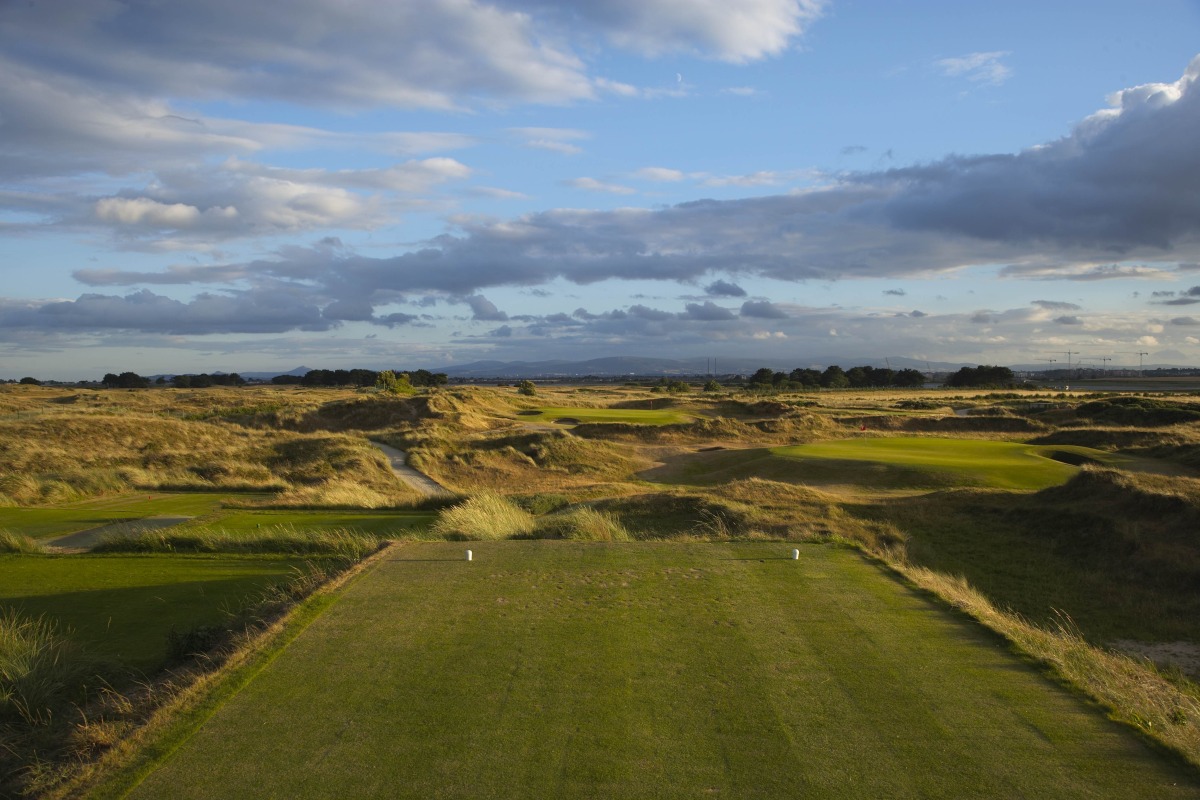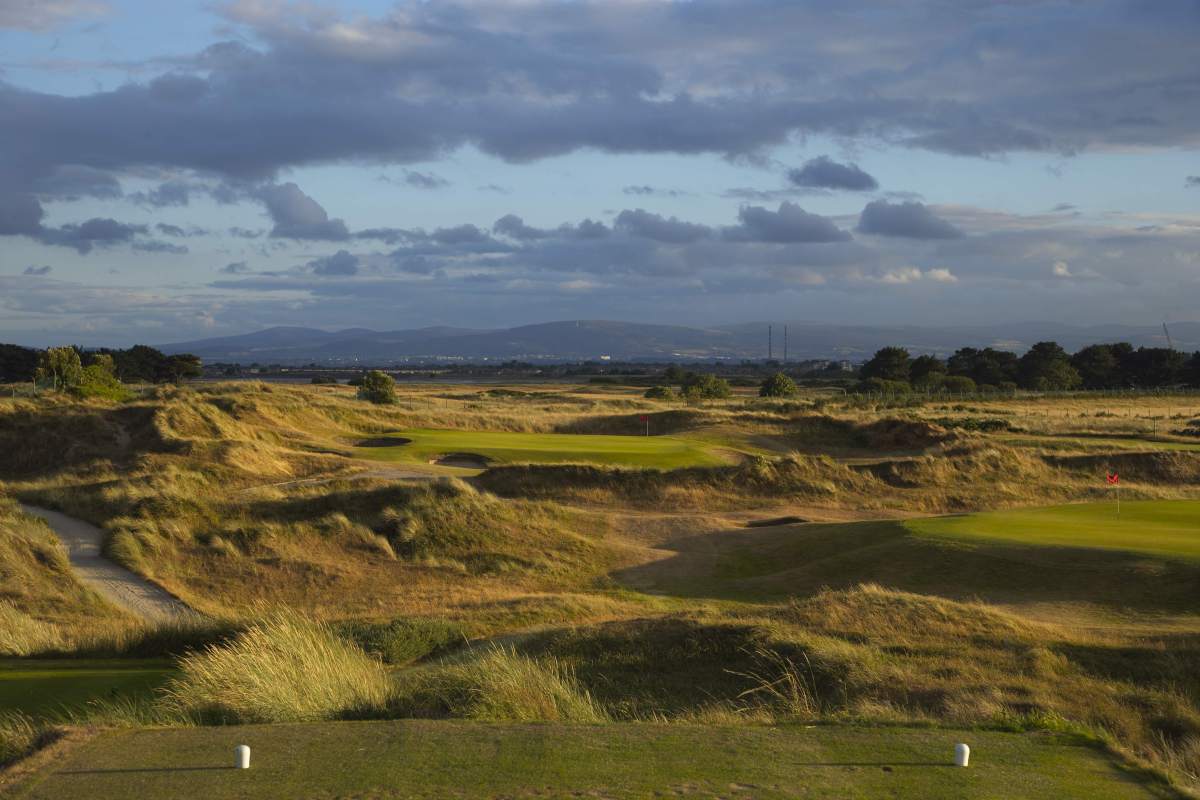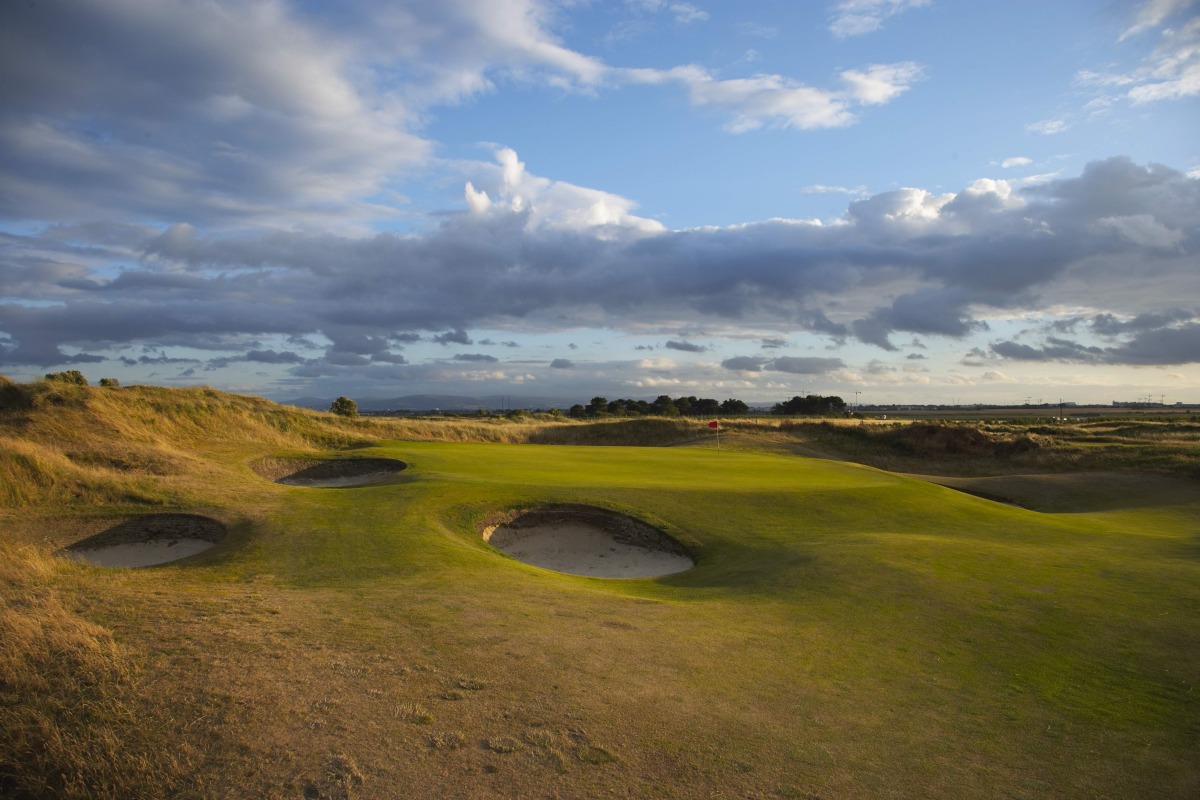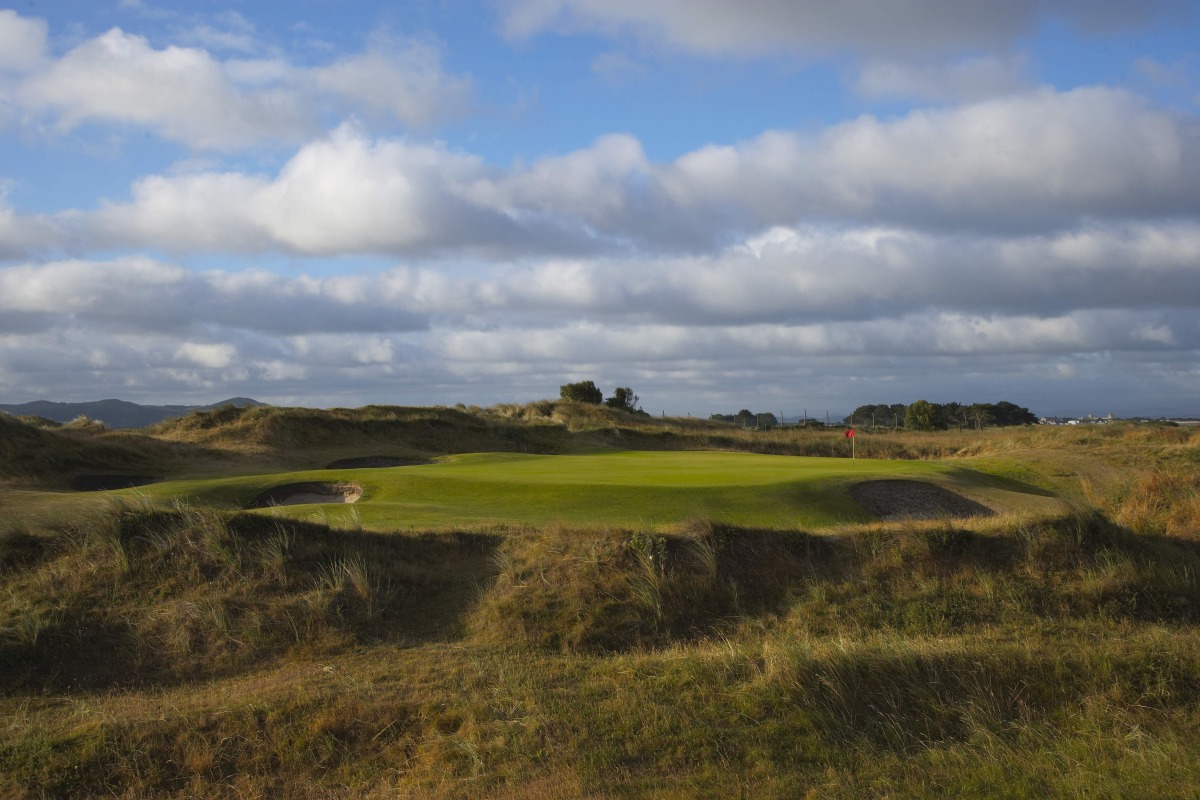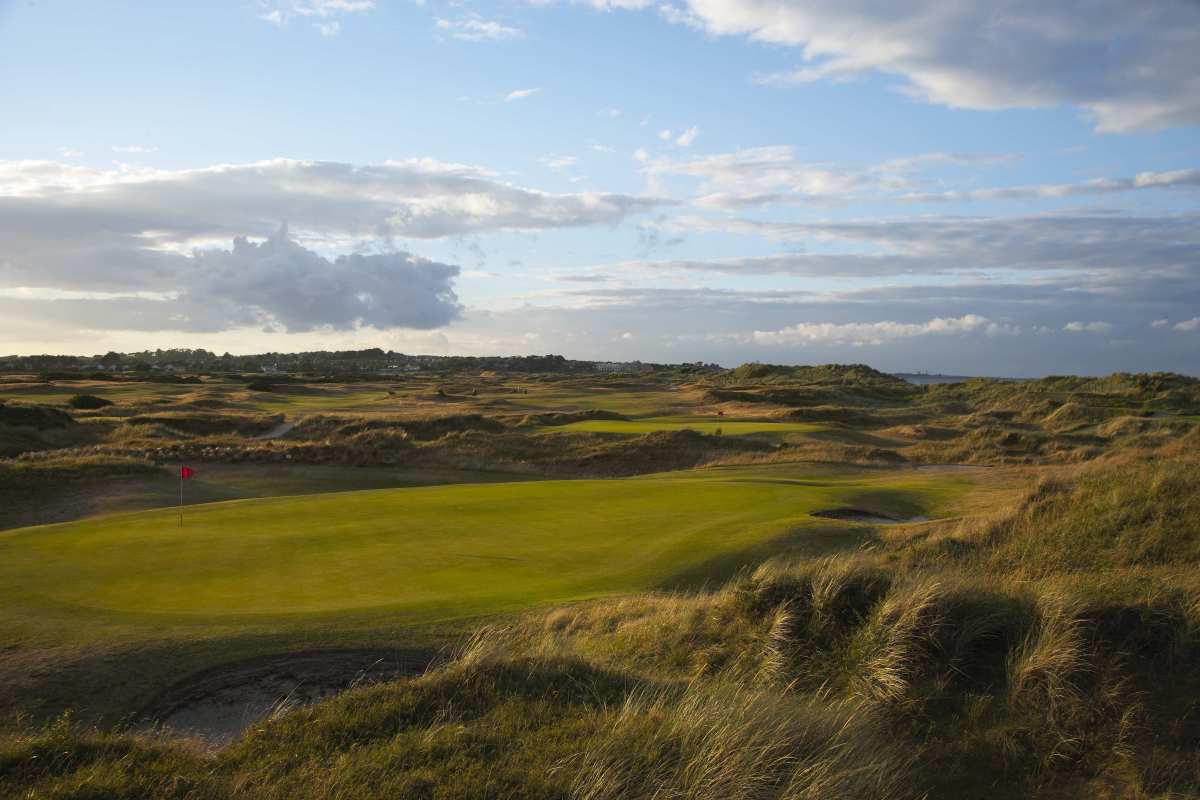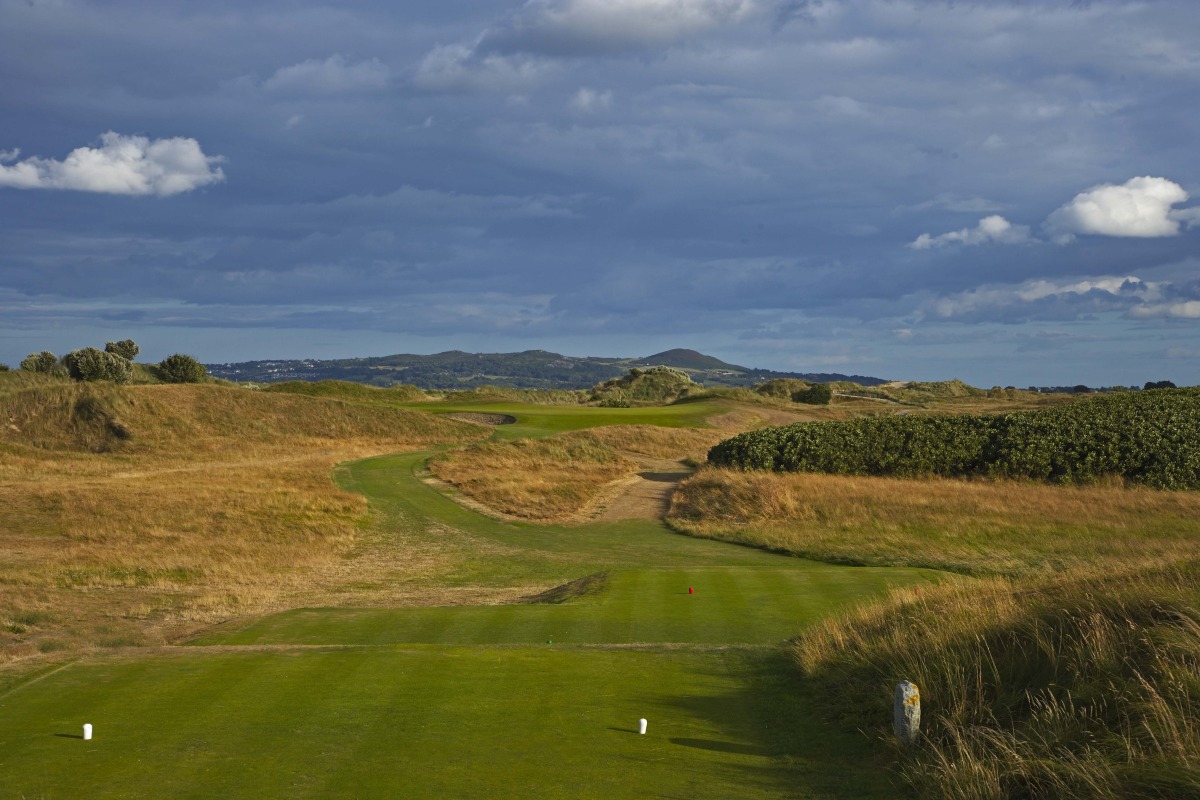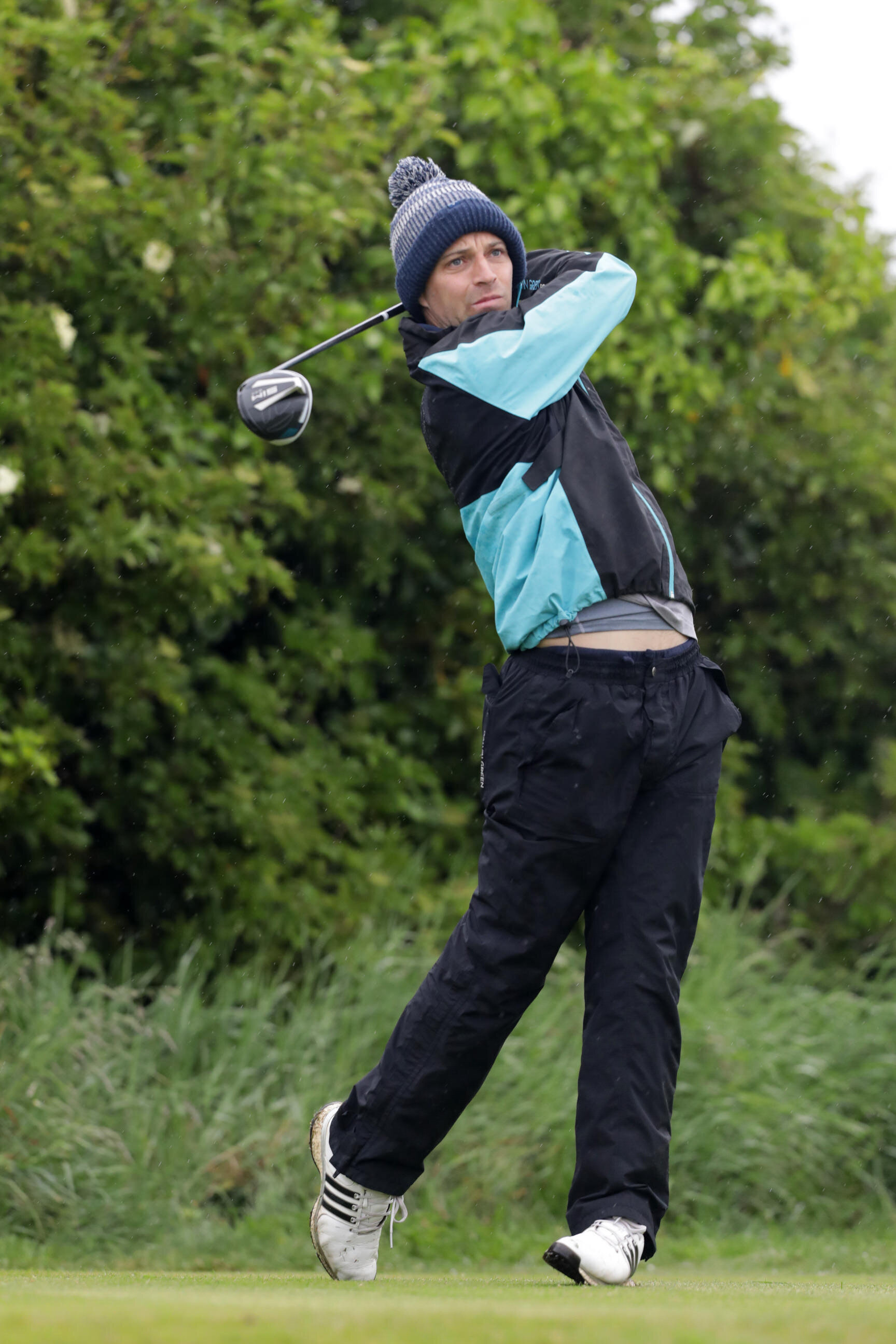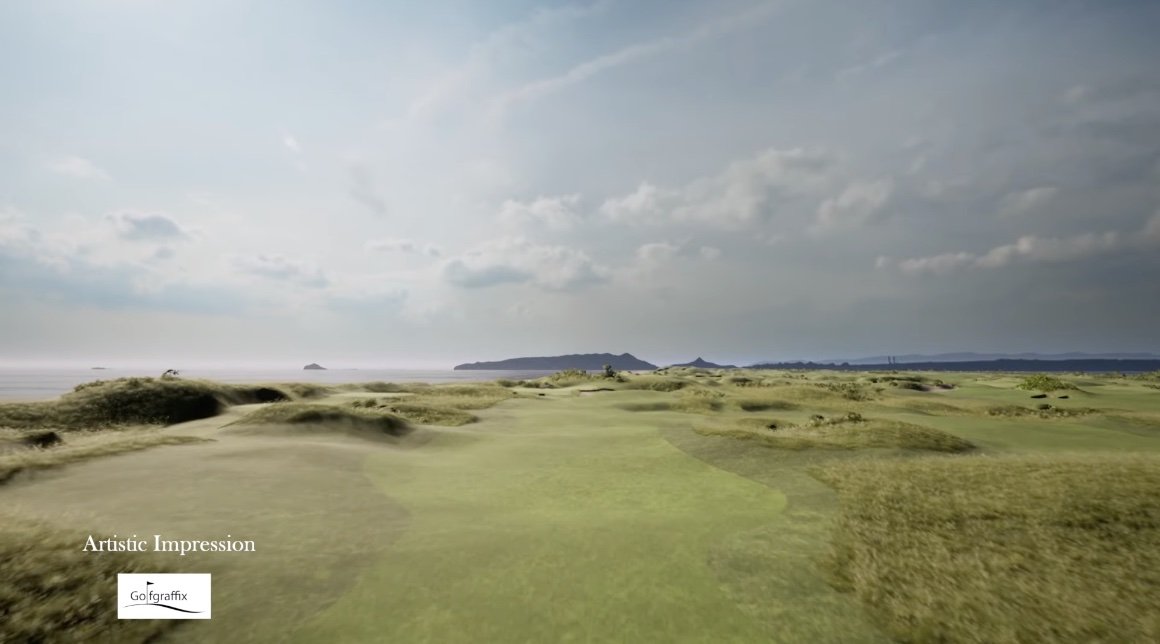The course that Bernhard built

The 18th at Portmarnock Hotel & Golf Links. Picture courtesy www.portmarnock.com
It’s not in the least unusual to see Pádraig Harrington out for a game at Portmarnock, sometimes in summer, often over the winter months, working on some intricate aspect of his routine, testing his game as the wind blows in off the Irish Sea. Yes, Ireland’s three-time major winner - and two time Open champion - often plays the private links at Portmarnock Golf Club which has hosted the Irish Open and the World Cup, but he’s as likely to turn up just next door to play The Links at the equally wonderful Portmarnock Hotel and Golf Links, designed by one of his great heroes, Bernhard Langer.
“Bernhard Langer was a role model of mine in terms of that's the sort of player I looked up to wanting to be like as a kid,” Pádraig says. “He was the professional's professional, he got the most out of his game; he was very disciplined and worked hard.”
Hard work and discipline took Langer to the top of the game with the highlights of his career coming at Augusta National, where he twice donned the green jacket awarded to the Masters champion. But he is also a great lover of links golf as his performances in the Irish Open, and The Open, attest.
Winner of the Irish title at Royal Dublin in 1984 and at Portmarnock in 1987, Langer would go on to win it again at Mount Juliet in 1994. But he’s always been a great lover of links terrain with his great regret the fact that, unlike Harrington, he never managed to lift the old Claret Jug, finishing in the top three now fewer than five times.
Langer’s desire to improve his links game took him to Ireland many times and early in his career he travelled as far as Co Sligo to play at Rosses Point and ended up heading to Enniscrone, where he spent longer than he had planned..
The 13th. Picture courtesy www.portmarnock.com
“I came for a day but ended up staying for a week,” Langer recalled.
With such a storied links pedigree, he was the ideal man to come to Portmarnock to add to the great golf offering on the sandy peninsula to the south of the village, where Portmarnock Golf Club made its home in 1894.
The land was once part of the ancestral family estate of the famous Jameson whiskey family who had a 12-hole golf course which stretched as far as the current 15th at neighbouring Portmarnock.
In the mid 1990s, Langer was appointed to design the new links at Portmarnock Hotel and Golf Links in conjunction with landscape architect Stan Eby, renowned for his work on PGA Golf de Catalunya, The Faldo Course at Sporting Club Berlin, The Montgomerie at Carton House Golf Club, Euphoria Golf Estate in South Africa or The Schloss Course at Fleesensee outside Berlin to name but a few.
With Eby’s help, Langer incorporated some of the original “Jameson” holes into his new masterpiece and the course opened to great acclaim in 1995 and become a welcome addition to the Irish links experience alongside its older “cousins.”
It has moved with the times too, undergoing major upgrading and renovation work in 2011 which have done nothing but enhance the work of the maestro.
"There are very few locations in Europe which could have allowed me the opportunity and landscape to design such a classic championship links, I hope those who play it discover its magic and challenging beauty," Langer said of his creation.
The German legend has every reason to be proud of a course that has hosted many championships, including the Ladies Irish Open on the Ladies European Tour in 2008 and 2009.
Set on an intriguing mixture of flat and undulating links terrain, there is a testing start from the elevated first tee - high tees are a feature of the course - with a drive to a generous fairway presenting the successful with a challenging carry over a stream to a large but well bunkered green.
To the right of the hole stands old St Marnock’s Cemetery and St Marnock’s Church, where an ancient ogham stone, inscribed with marks used as an early form of writing in Ireland an other celtic nations from the fourth century, once stood proudly before being mysteriously broken up in the 19th century.
The opening hole measures less than 400 yards and while the course itself is a par-71 of 6,444 metres from the back stakes - just over 7,000 yards - it is a serious test from the tiger tees for all but the most experienced single handicappers, especially when the wind blows.
The renowned traveller and American golf photographer Robert Matre, describes The Links at Portmarnock as offering “a fine test of links golf over land that makes good use of the topography and vistas.”
Yet there is a caveat.
“It is a fun course, but no pushover, although it is a little more ‘playable’ than most of the classic links courses," Robert writes. “However, we ventured out for an extra 11 holes after our round, and played it from the tips as high winds moved in. It proved to be very different and difficult test of golf, much tougher than the forward tees.
“There are many things to like about this course, in both its playing characteristics and visual drama. As opposed to most newer and modern courses, it has an understated and elegant charm that defies its youth, and there is a nice flow to the course as it moves from the interior flatlands toward the massive dunes along the Irish Sea with stunning views of Ireland’s Eye.
“The sod faced bunkers are particularly impressive, as long as you keep your ball away from their edges. The final hole is dramatic, played along the sea with its green tucked into an amphitheater of native grass.”
The reward of a drink in the hotel’s famous Jameson Bar awaits you after your round and gives you a chance to absorb the history of the hotel, which was once part of Jameson whiskey family’s St. Marnock’s Estate.
Situation just 15 minutes drive from the airport and only a stone’s throw from Dublin City, Portmarnock Hotel and Golf Links has become a favourite for travelling golfers from all over the world, including 007 himself, Sean Connery.
“I was delighted and surprised to find a new course designed and built in the traditional links style, you would be hard pressed to find a more invigorating vision and challenge. It’s that good,” the Scottish actor, famous for his portrayals of James Bond, says.
The welcome is always second to none and the Director of Golf, the estimable Moira Cassidy, is steeped in golfing tradition since childhood and a proud custodian of the links, which underwent a major upgrade in 2011.
Much of the heavy rough was eliminated, enhancing the playability factor for most without diminishing the challenge for the low handicappers. New tees were also built, adding greatly to the aesthetics as well as the tactical challenge of the course.
The most obvious is the new, high tee at the first, which offers a straightaway view of the opening fairway while a new tee at the testing, dogleg right 16th has created a magnificent view of Lambay Island, referred to in the writings of the ancient Greeks Pliny and Ptolemy as ‘Limnus’ or ‘Limni.’
A number of Iron Age burials were discovered on the island in 1927 along with a number of Romano-British items, which have been interpreted as evidence of the arrival of a small group of refugees, fleeing the Romans from 71 to 74 AD.
New high tees on ninth, 10th, 11th and 13th have also helped maximise the views while a new 13th green has added 75 metres to this par-five, making it one of the most memorable on a course where fescue greens ensure perfect putting surfaces all year round.
The course is just part of the package, however, and the hotel is an oasis of tranquility and luxury for travelers looking for a true Irish links experience near the buzzing metropolis of Dublin.



